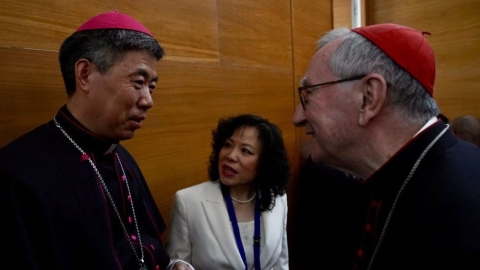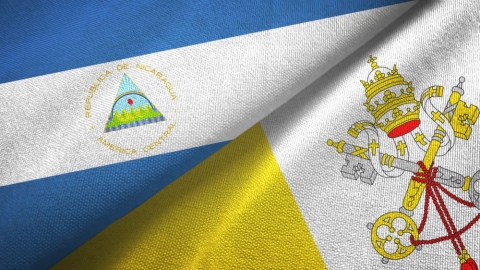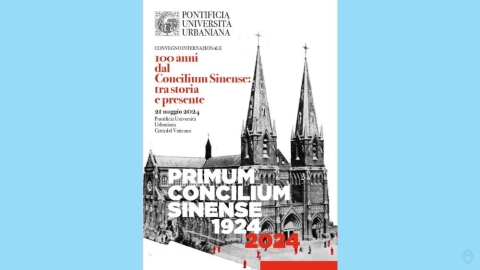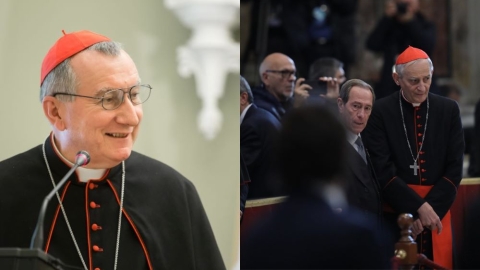Synod Fathers in the Image of Francis (3)

Published on July 7, 2023, the list of participants in the XVI General Assembly of the Ordinary Synod of Bishops – or Synod on Synodality – in October, was released to the press by the Vatican. It is instructive on the intentions of Pope Francis, and may suggest that the synod is already over. But one must rise above these down-to-earth maneuvers.
In this particularly alarming situation, it is interesting to read the analysis of Hector Aguer, the former Archbishop of La Plata (Argentina), replaced by Archbishop Fernández, the protege of Francis, who has just been promoted to prefect of the for the Doctrine of the Faith, before receiving the cardinal's birretta this September.
This analysis dates from July 4. It is taken from Aldo Maria Valli’s blog of July 8. He sheds light in anticipation on the choice of the members of this synod, made public on July 7: “Amazement. This is the word that rises to my lips after reading the 50 pages of the Instrumentum laboris for the synod democratically scheduled since 2021.
“La Prensa, from Buenos Aires, headlines: ‘The Vatican has published the thorny roadmap for the next synod.’ The document emphasizes the ‘profound need to emulate our Master and Lord in the ability to live an apparent paradox: to aggressively proclaim his authentic teaching, and at the same time serve as a witness for inclusion and radical acceptance.’”
“What aggressive and paradoxical imitation of Christ? This is an unusual approach: the Synodal Church formulates a progressive gloss on the Gospel. The Instrumentum laboris illustrates how the globalist agenda for 2030 can be received at the church level. It is admirable how the papal monarchy makes ‘synodal democracy’ say what he wants this “democracy” to say.
“It's like throwing a pebble and hiding your hand. The itinerary of the future assembly, already in preparation for two years, makes the ‘crowd’ speak and vote, especially and in a new way, women. This is what I was referring to with the well-known example of the pebble. When the project of this other Church is completed, the sovereign pontiff, in the face of the criticisms which will not fail to come, will be able to say: ‘It was not I who did it!’”
“Resuming the path traveled since 2021, the document addresses the question of a new ecclesiology: synodality. Allow me to digress: ‘synod’ means ‘to walk with’ (from the Greek syn and odos) but does not say towards where! The destination can therefore be the new progressive Church, heterogeneous in relation to the great ecclesial Tradition. And let us all go together!”
Further, Aguer notes: “The text of the Working Document goes on to point out that ‘some people do not feel accepted in the Church, such as the divorced and remarried, people living in marriages formerly defined as irregular, or LGBTQ+ people, and there are forms of racial, ethnic, class or caste discrimination that lead some to feel less important or less welcome in the community.’”
“The goal of ‘overtaking’ is formulated in these terms: 'How can we create spaces where those who feel hurt by the Church and rejected by the community can feel recognized, not judged and free to ask questions? And what are the concrete steps to take to reach people who feel excluded from the Church because of their affectivity and their sexuality?”
“These will be the questions the synodal assembly will ask. I’ll risk an interpretation: objective truth and the recognition of precepts by which virtue and sin are recognized and judged no longer count. What matters now is the feeling of those who see themselves as excluded; it is their feeling, not the objective state in which they find themselves.”
And the Argentinian archbishop denounced the Protestantization of the Church, quoting the Lutheran philosopher Soren Kierkegaard: “As curious as it may seem, the Catholic Church belatedly began to follow the path opened up by the Protestant Reformation, whereas Protestantism has long since been swallowed up by the world.”
“Soren Kierkegaard, wrote in his Diary in 1848: ‘When we talk about reorganizing the Church, we see clearly how little Christianity there is in it’ (IX A 264). On the same page, he speaks of the ‘unfortunate illusion of Christianity, which replaces the fact of being a Christian with the fact of being human.’”
“It is this fatal illusion that deceives the Catholic Church today. The synod program, like that of the German Synodal Path, draws another Church, heterogeneous in relation to the great and unanimous Tradition.”
Then, quoting the promise of Christ: “I will be with you always until the end of the world” (Mt. 28:20), Archbishop Aguer recalls that evil is permitted by God who will derive greater good from it, and that the causes of this evil, however powerful they may appear, are only secondary causes, subject to the omnipotence of God, the only First Cause.
Here is how he expresses it: “In the mysterious order of divine Providence is inscribed the play of secondary causes, which it orders according to impenetrable designs. In Providence are manifested justice and mercy. Providence includes, therefore, the dialectic of secondary causes, and one can thus say that it allows evil.”
“The designs of the authors of the synod are those secondary causes, free to do evil. How dare I express myself in these terms? I recognize and venerate Francis as the successor of Peter, the vicar of Christ. But Francis remains Jorge Bergoglio. However, I have known Jorge Bergoglio for 45 years. It is a ‘second cause.’”
(Sources : Aldo Maria Valli – Trad. à partir de benoitetmoi/DICI n°435 – FSSPX.Actualités)
Illustration : synod.va





